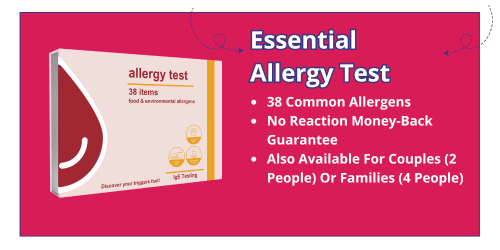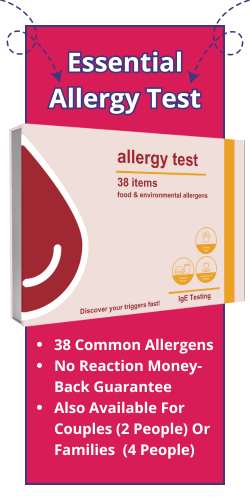Just like every other member of our family, we want to do what is best for our furry companions. With International Dog Day front and centre this weekend, it is the perfect opportunity to dedicate time and attention to an often-overlooked component of pet health: allergies. Can dogs have allergies? Absolutely! The same goes for cats and other furry creatures. We now live in a world where we can get an allergy test for dogs to understand what’s going on in their bodies — much like we’d get one for ourselves. Curious? Keep reading!
Can dogs have allergies?
As you can probably guess, the answer to this is a “yes.” Dogs can have food allergies, environmental allergies, and more. Allergies and intolerances are as popular in pets as in humans, which often surprises many well-intentioned pet parents.
In fact, the most common food allergies are common in a lot of pet food, including dairy, eggs, fish, pork, beef, and wheat. These are common ingredients in dog food, treats, and table scraps that many of us give to our pets without concern. This is one reason why an allergy test for dogs is a good idea if your dog has strange allergic reactions that you can’t pinpoint.
What do allergies look like in pets?
That leads us to a logical question, then. What do allergies in dogs look like? It will depend on your dog and the severity of the reaction that they’re having, of course, but there are a few different symptoms that you can watch for, including:
- Itchiness on paws, in armpits, and ears
- Digestive issues
- Vomiting
- Diarrhoea
Depending on the timing and your dog’s washroom habits, these allergy symptoms can be challenging to spot. Thankfully, there are other easy-to-spot allergy symptoms that you can look for in your dog’s lifestyle. These include the following:
- Skin rashes
- Broken or sore skin
- Lumps
- Swelling
- Fur loss
- Scabbing
- Runny eyes and sneezing
As with most allergies (human and canine), the more severe the allergy, the more severe the reaction. Sometimes, deciding how to treat allergies can be challenging since dog allergy needs differ from human allergy needs!
How do you treat allergies in dogs?
The good news is that allergies in dogs can be treated, whether mild or severe. Some vets will recommend antihistamines, but it will depend on your dog’s history. It’s a good idea to check with your vet before giving your dog any medication.
If your dog has food allergies, you’ll want to start by only giving your dog good-quality food. The more natural it is, the better chance your dog will be able to tolerate it. You’ll also want to consider changing what your dog eats since our pets tend to eat the same thing day after day, week after week, etc. If your dog is over-exposed to the same ingredients, they can develop a food allergy or food intolerance to the active ingredients.
If your dog suffers from environmental allergies, you can focus mostly on hygiene. Keep your dog well-groomed, which keeps allergens out of their fur. You’ll also want to hoover your home regularly and wash your pet’s bedding regularly. Keep a close eye on the ingredients of your household cleaners, air fresheners, candles, and more, since these can worsen your dog’s allergies.
Give your dog the best quality of life possible
Since International Dog Day is the perfect chance to look at the best care and health for our dogs, get up close and personal with a carefully designed at-home allergy test for dogs. This is an easy way to know how your dog is reacting and what they are reacting to, giving you crucial information to help adjust your dog’s diet or lifestyle for an easier time.
The other thing to consider is talking to your vet. They’ll be happy to answer the question, “Can dogs have allergies?” directly with their own advice and then can work with the test results from your allergy test to help you give your dog a great life. It’s the least we can do for our furry family members, after all.
Allergies can seriously impact your dog’s overall quality of life, so it’s no small thing to consider allergy and intolerance testing to diagnose your dog or cat’s mysterious symptoms. Luckily, the world has progressed to the point where there is a plethora of information and detail about dog allergies and intolerances to help guide you toward the correct decision for you and your furry family members.








